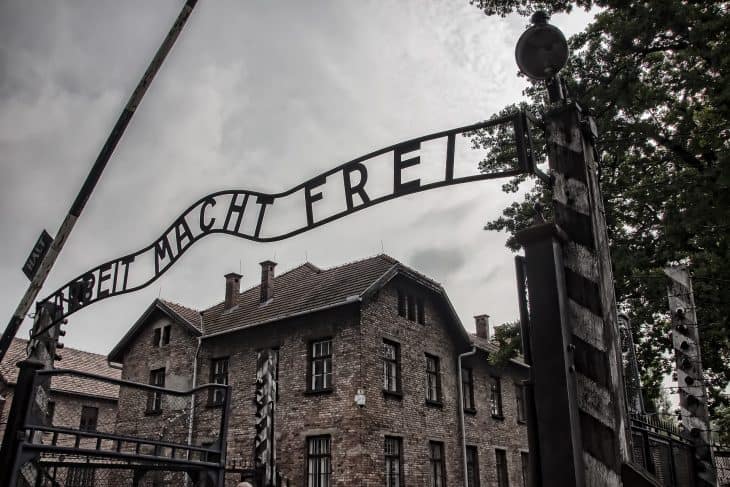
- Synonyms: Shoah, genocide, the Final Solution
- Definition: The killings of millions of Jews and others by the Nazis during World War II
- When: 1933 – 1945
- Where: Europe
- Victims: Jews, homosexuals, Poles, communists, mentally or physically disabled
- Casualties: 11 million
- Location: Concentration camps, extermination camps
- Linguistics: From the Greek word holókauston, meaning animal sacrifice to a god
- Movies: The Pianist, Schindler’s List, Sophie’s Choice, Life Is Beautiful
- Perpetrators: Adolf Hitler, Heinrich Himmler, Otto Eichmann, Joseph Mengele
- Consequences: About Two Thirds of 9 Million European Jews Were Killed
- Timeline: The Holocaust Was Most Intense during World War II
- Resistance: The Jewish Resistance Was Present throughout the Holocaust
- Revenge: The Nokmim and the Nakam Groups Avenged the Holocaust after the War
- Camps: Auschwitz Was the Most Infamous Camp of the Holocaust
- Methods: Mass Shootings and Gas Chambers Claimed the Majority of Holocaust Victims
- Facilities: More Than 42,000 Facilities in Germany and Occupied Territories Were Used for the Holocaust
- Beginning: The Repression of Jews Started Long before the Infamous Mass Killings
- Camps: Dachau Was the First Concentration Camp in Germany
- Refugees: Most Countries Refused Jews Who Fled from Germany
- Hitler Never Visited a Single Concentration Camp
- “Arbeit macht frei” Was the Slogan Used in Many Concentration Camps
- Anne Frank Died in a Concentration Camp Shortly before the End of the War
- Most Jewish Victims of the Holocaust Were Women
- Many Camp Prisoners Tragically Died in the Days after Liberation
- More Than 500,000 People Still Visit Auschwitz Every Year
- 3.4 Million Former Nazis Were Punished in the Years after the Holocaust
- The Last Concentration Camp Was Liberated in May 1945 by US Forces
- The Company That Created Zyklon B Still Exists
- The Term “Holocaust” Was Popularized by the NBC’s Miniseries
About Two Thirds of 9 Million European Jews Were Killed
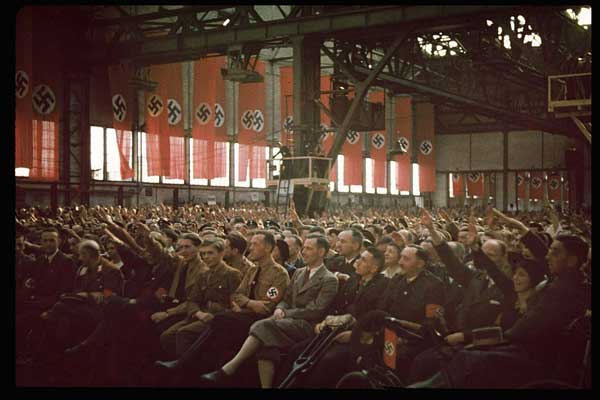
Holocaust facts reveal that the systematic killing of Jews by the Nazis ended in a shocking death toll: about 6 million Jews died, among them about 1 million children. The Final Solution to the Jewish Question, as the Nazis called the genocide, was devised by Hitler himself and carried out by thousands of his officers and soldiers.
The Holocaust Was Most Intense during World War II
The deadliest conflict in human history lasted from 1939 until 1945, and throughout the war, Jews and other groups that were perceived as inferior by the Nazis were ruthlessly persecuted and violently killed. But the systematic and methodical genocide began only in 1941, and ended in 1945, when concentration camps were liberated by the Allies.
The Jewish Resistance Was Present throughout the Holocaust
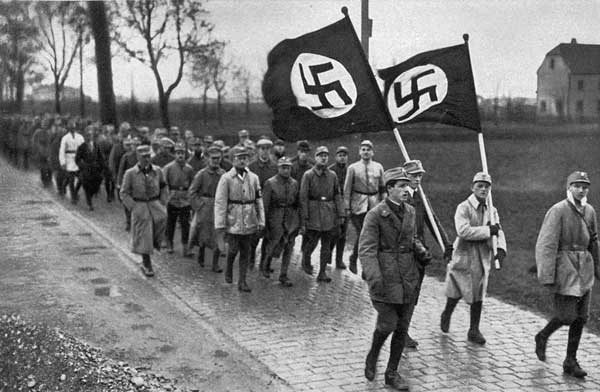
Jews, as the main targets of the Nazis’ violent persecution, were always ready to fight the oppressors, although they were very limited in their strength and options. Common forms of resistance included ghetto and concentration camp uprisings, Jewish partisan groups, assassinations, and passive forms of resistance, such as persisting through the brutalities and dying with dignity.
Among thousands and thousands of Jewish heroes who bravely fought the oppression, Mordechaj Anielewicz, Dawid Apfelbaum, Paweł Frenkiel and Herbert Baum are just a few of the best known fighters who gave their life resisting the violent Nazi regime.
The Nokmim and the Nakam Groups Avenged the Holocaust after the War
Although the war and the Holocaust ended in 1945, freeing all Jews across Europe, some of them felt the need to revenge the violent crimes carried out against them during the war. The Nokmim (Avengers) and the Nakam (Revenge) groups travelled across Germany and other European countries, searching for Nazi war criminals with the intention of killing them. The exact statistics of these revenge killings are unknown, but at least a few hundred alleged war criminals were executed by the Jewish revenge groups.
Auschwitz Was the Most Infamous Camp of the Holocaust
Holocaust facts show that Auschwitz was a network of both concentration camps and extermination camps that operated between 1940 and 1945. At least 1.1 million prisoners died at the camp – more than in any other Nazi extermination camp. Some 90% of them were Jewish, while others were Polish, Romani, Sinti, Soviet prisoners of war, or homosexuals.
Auschwitz became one of the leading locations for the execution of the Nazis’ Final Solution and was staffed by approximately 7,000 members of the German Schutzstaffel. About 1 in 8 of them was later convicted for war crimes and some of them were executed, including the infamous commandant of the camp, Rudolf Höss.
Mass Shootings and Gas Chambers Claimed the Majority of Holocaust Victims
Death squads were responsible for countless mass shootings after the systematic violence against Jews and other minorities perceived to be inferior had begun. But the Nazis found other methods of mass murder – poisonous gas, which become the prevailing method of killings in extermination camps through the use of gas chambers.
Many prisoners were also killed during ruthless medical experiments, or died from exhaustion during the infamous death marches, where they were forced to travel on foot or by train for days, cramped, and without food or water.
More Than 42,000 Facilities in Germany and Occupied Territories Were Used for the Holocaust
These places of repression and death were scattered throughout the occupied parts of Europe, including Poland, the Czechoslovak Republic, Yugoslavia, France, Italy, Austria, the Soviet Union, and, of course, Germany. Some were used as part of ghettos, and others as concentration, extinction or forced labor camps.
The Repression of Jews Started Long before the Infamous Mass Killings
Holocaust facts reveal that the beginnings of the Holocaust can be tracked back to 1933, when Hitler first came to power. Jews were forced to live in ghettos, and the 1935 Nuremberg Laws stripped them of their German citizenship and prohibited sexual relationships between Jews and Germans.
One of the most famous incidents connected to the Holocaust that occurred prior to the systematic genocide was the so-called Kristallnacht (“the Night of Broken Glass”) in the night of November 9-10 1938, when Nazis attacked Jewish communities across Germany and Austria, destroying their homes, stores and synagogues, killing 96 Jews and arresting about 30,000.
Dachau Was the First Concentration Camp in Germany
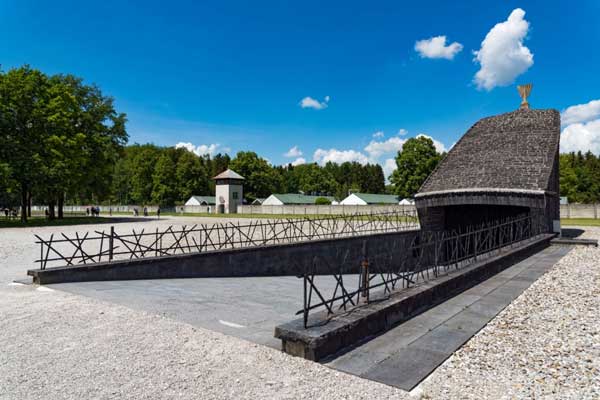
Opened on March 22 1933, Dachau became the first concentration camp in Germany – 6 years before World War II officially started. Initially, it was used for political prisoners, but after the passing of the Nuremberg Laws in 1935, it was used for all minorities that were regarded as inferior by the Nazi regime. For a few years after the war, the facility was used to hold SS soldiers who were awaiting trial.
Most Countries Refused Jews Who Fled from Germany
In 1938, before the war and the systematic extermination of all Jews started in Germany, many of them wanted to leave the country, but most of the world simply wasn’t ready to accept the refugees. Holocaust facts reveal the shocking truth that Australia, Canada, the United States, Great Britain and many other big countries all refused the possibility of accepting Jewish refugees.
Hitler Never Visited a Single Concentration Camp
Some Holocaust facts reveal really surprising information, and the fact that Hitler never visited a single concentration camp (nor an extermination camp) is truly unbelievable. Why did the mastermind behind the Holocaust and other war-time atrocities never visit a camp? He was known to stay away from the dirtiest work of the regime (although he planned it) and never publicly spoke about the killings, not even to his closest companions.
“Arbeit macht frei” Was the Slogan Used in Many Concentration Camps
Meaning “Work shall set you free” in English (literally “Work makes free”), the phrase was used in various concentration camps across Germany and occupied territories, most notably in the infamous concentration camps of Auschwitz and Dachau. It originates from the 1873 novel by the German philologist, Lorenz Diefenbach.
Anne Frank Died in a Concentration Camp Shortly before the End of the War
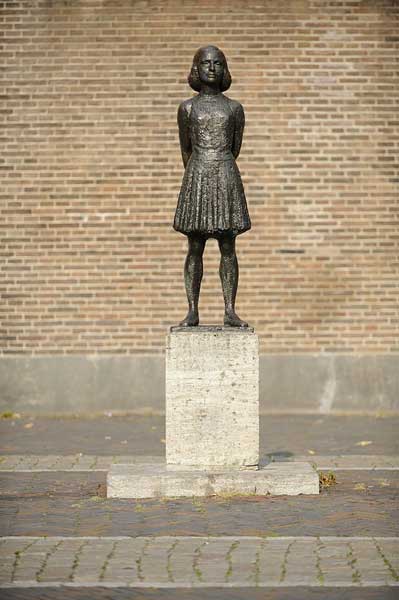
The Diary of Anne Frank, describing her family’s hiding during the Nazi occupation of the Netherlands, has been published in many languages, becoming an international bestseller. The diary has inspired many plays and movies since its publication, but many people don’t know that Anne Frank died in the Bergen-Belsen concentration camp only a few weeks before it was liberated by the Allies in April 1945.
Her diary, written in Amsterdam between June 1942 and August 1944, was later discovered by the only surviving member of the Frank family, Otto Frank (Anne’s father), with the help of Miep Gies, one of the family’s helpers, who had saved and preserved the diary after the family had been discovered and captured by the Nazis.
Most Jewish Victims of the Holocaust Were Women
The fact that more than half of Jewish victims were women can be attributed to most women with children being immediately sent to gas chambers, since they were useless to the Nazis. Many of them also died in cruel medical experiments connected to contraception and fertility.
Many Camp Prisoners Tragically Died in the Days after Liberation
Although freed from the Nazis’ torture, many of them were starved, sick and heavily beaten, and thus tragically died within the first week of liberation. In Dachau, approximately 200 liberated prisoners died daily in the days following the liberation, and in Bergen-Belsen the number was close to 300.
More Than 500,000 People Still Visit Auschwitz Every Year
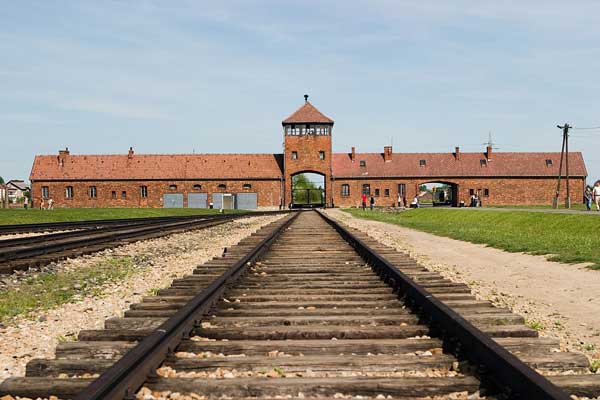
Oświęcim is a small town of about 40,000 inhabitants in southern Poland. Nowadays, it is visited by half a million people each year, since the infamous Auschwitz concentration camp complex once stood in its vicinity. Holocaust facts show that the world still remembers…
3.4 Million Former Nazis Were Punished in the Years after the Holocaust
The Allies’ most notable powers, Russia, Great Britain and the USA, managed to punish a huge number of former Nazis after the war had ended. But many fled, hiding abroad until their death, and were never held accountable for their crimes.
The Last Concentration Camp Was Liberated in May 1945 by US Forces
According to Holocaust facts, Mauthausen was the last of the liberated Nazi concentration camp complexes. US forces liberated it in the days between May 5 and May 8. May 8, 1945 is also the date when Nazi Germany capitulated to the Soviet Union.
The Company That Created Zyklon B Still Exists
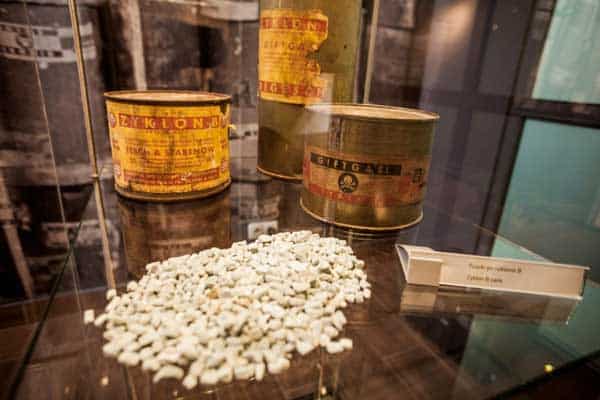
Zyklon B is the poisonous gas that was used to kill more than a million people in gas chambers during the Holocaust. The company that created the gas still exists today and produces pest control products, giving us one of the strangest Holocaust facts.
The Term “Holocaust” Was Popularized by the NBC’s Miniseries
The miniseries “Holocaust” aired in four parts on NBC in 1978 and introduced the term to common use to describe the genocide of Jews by the Nazis during World War II. Some Jews are offended by the term due to its original Greek meaning, and prefer to use the term “Shoah” (“calamity” or “catastrophe” in English).
Holocaust Facts — Facts about the Holocaust Summary
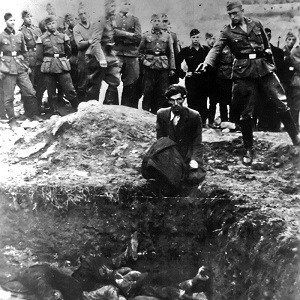 Holocaust is the term describing the genocide by the German Nazis over Jews and other minorities perceived as inferior by the Nazi ideology. The systematic Nazi killings during World War II claimed 11 million lives, mostly through mass shootings and the use of poisonous gas in extermination camps. Dachau was the first concentration camp, opened in 1933, and Auschwitz was the most infamous one, claiming over a million lives. Over two thirds of European Jews are estimated to have been killed during the Holocaust, and the decade-long nightmare finally ended in 1945, when the Allies defeated the Nazis and liberated all the concentration and extinction camps scattered through Germany and other occupied territories.
Holocaust is the term describing the genocide by the German Nazis over Jews and other minorities perceived as inferior by the Nazi ideology. The systematic Nazi killings during World War II claimed 11 million lives, mostly through mass shootings and the use of poisonous gas in extermination camps. Dachau was the first concentration camp, opened in 1933, and Auschwitz was the most infamous one, claiming over a million lives. Over two thirds of European Jews are estimated to have been killed during the Holocaust, and the decade-long nightmare finally ended in 1945, when the Allies defeated the Nazis and liberated all the concentration and extinction camps scattered through Germany and other occupied territories.
Was this page helpful?
Our commitment to delivering trustworthy and engaging content is at the heart of what we do. Each fact on our site is contributed by real users like you, bringing a wealth of diverse insights and information. To ensure the highest standards of accuracy and reliability, our dedicated editors meticulously review each submission. This process guarantees that the facts we share are not only fascinating but also credible. Trust in our commitment to quality and authenticity as you explore and learn with us.
